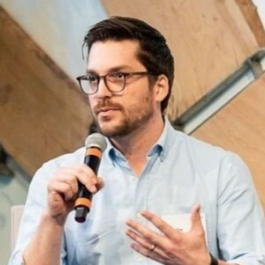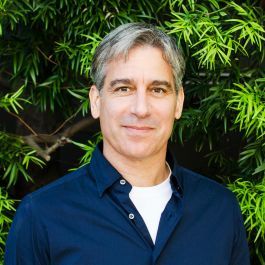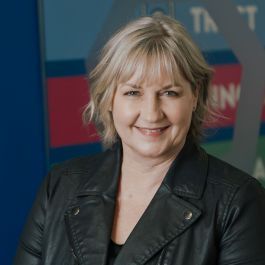Loyalty is the linchpin of our most cherished institutions. It is a hallmark of success in relationships, global organizations, and businesses of all sizes. Without loyalty, lasting growth can seem out of reach. With it, the sky’s the limit. Yet despite the overwhelming importance of loyalty, bottling such a critical ingredient remains an elusive task, particularly in the workplace.
More importantly: loyalty cannot be bought.
A 2019 study from O.C. Tanner revealed that while 89 percent of employers think their employees leave because of money, in actuality only 12 percent leave for financial reasons. Furthermore, a separate study by Speakap found that more than half of all employees would move to a competing firm in search of a better culture, and 48 percent would work a 60-hour week in exchange for a better culture. For many, culture was the deciding factor for remaining loyal to their place of employment.
So what does it take to foster happy and engaged employees who choose to stay with their companies for the long haul? Two things are clear: loyalty must be earned, and company culture is the proving ground. While there is no one-size-fits-all formula for earning employee loyalty, we checked in with three savvy tech companies who claim to have achieved incredible levels of employee satisfaction and retention, and let them share their ideas for crafting a culture that earns the trust and admiration of the workforce.
We learned that with key programs and support in place, employee loyalty can be carefully developed over time, and then harnessed to create an exciting future for everyone involved.
Putting your marketing and talent acquisition teams’ efforts toward a single strategy makes branding twice as effective and half as expensive.
PEAK6
Denise Dunlap
CHIEF PEOPLE OFFICER

PEAK6 is an investment and fintech firm committed to supporting ventures that use technology to improve processes. For Chief People Officer Denise Dunlap, building employee loyalty means allowing team members’ voices to be heard. She said that inviting feedback on processes and encouraging idea development results in loyal, happy and eventually long-tenured employees.
What is the key to developing employee loyalty, and what does this look like in action?
The PEAK6 culture invites employees to be heard. Good ideas can come from anywhere and anyone. The company invites feedback and encourages employees to help the firm continuously improve. There are countless examples of employees who developed a plan, process or new technology and they are given the runway to give it a try. You don’t have to be a senior leader to have a good idea or have a decade of experience to lead an initiative or be a CEO of one of our portfolio companies.
A workplace that encourages employees to tackle challenges and explore opportunities also cultivates leaders of all levels of experience. Employees can look around and see examples of their colleagues who started in one role and are quickly given the opportunity to apply their skills to other parts of the firm. It’s not uncommon to see former interns who are now managing teams and taking on significant leadership roles. When employees are given opportunities to learn, grow and expand their skill sets, they have every reason to stay with a company that understands the value they contribute to the organization.
A workplace that encourages employees to tackle challenges and explore opportunities cultivates leaders of all levels of experience.”
What impact has employee loyalty had on your business over the years?
Due to our tremendous growth, we have many one, two and three-year anniversaries, but I find it remarkable to see so many of our employees hitting their 10, 15 and even 20-year anniversaries. Most of our long-tenured employees have held a variety of roles, often across our businesses. There is a commonality in our longer-term employees — they share a similar work DNA. They all possess the ability to work in a fast-paced environment and quickly adapt to changing markets and environments.
The most tenured employees know change is essential to drive the business forward. You don’t hear, “This is how it has always been done.” Instead, you hear, “How can we make it better?” Fundamentally, our employees who have been with us longer are truly committed to our core values. Our core values aren’t just rhetorical — they define how we make decisions and run our businesses.
Provi
Taylor Katzman
CHIEF EXECUTIVE OFFICER

Provi is a software platform that connects beverage alcohol retailers and buyers with a goal of creating an equal and competitive marketplace. CEO Taylor Katzman said that the key to developing employee loyalty is to build trust with employees and empower them to make their decisions.
What is the key to developing employee loyalty, and what does this look like in action?
Trust. In a fast-moving company with enormous opportunity, it’s essential to give people enough space to take ownership and expand their own capabilities. As an organization, we built trust by empowering employees to make decisions, as well as providing feedback based on their own expertise and execution. When you create an environment that encourages open lines of communication, collaboration and accountability, your employees become more confident in their work, grow in their role and become passionate about not only the product but also the culture here.
When you create an environment that encourages open lines of communication, your employees become more confident in their work.”
What impact has employee loyalty had on your business over the years?
Our emphasis on developing loyalty with employees has paid off exponentially — especially in regard to our engineering pipeline. Currently, three of our engineering staff started their careers at Provi in different departments. By investing in their skills, those employees excelled in their initial roles and gained the experience needed to make the transition.
Those internal promotions are huge for us! Every tech company struggles with filling its engineering pipeline. Attracting quality candidates and competing with other tech companies can be a major challenge. Here, we never forget that Provi can be its own pipeline. There are a million ways to further your career and a million paths to get there.
PerkSpot
Taylor Somach
VICE PRESIDENT OF MERCHANT PARTNERSHIPS

PerkSpot aims to help companies attract and engage their employees with exclusive perks, benefits and discounts. For Vice President of Merchant Partnerships Taylor Somach, employee loyalty is a two-way street. He said that by treating his employees with the same respect and trust asked of them has resulted in very little turnover in the last few years.
What is the key to developing employee loyalty, and what does this look like in action?
I think it first starts with the realization that loyalty is a two-way street. Our employees deserve the same respect, trust and commitment to their success that we ask of them.
Developing personal relationships within the team allows me to get to know my colleagues beyond their professional contributions, and I hope it allows them to bring their whole selves to work. This creates strong bonds to each other and also to the company that fosters these relationships.
Developing personal relationships within the team allows me to get to know my colleagues beyond their professional contributions.”
What impact has employee loyalty had on your business over the years?
Put simply, my team has had very little turnover because even through challenging times like the COVID-19 pandemic, they put their faith in me and the company to do what was right. I knew they were trying their hardest and when we asked them to do a 180-degree turn to adapt to changing consumer demands, they answered the call beyond expectations. As we have significantly grown the team over the last two years, the team veterans are the cornerstone of our culture and invaluable in training and mentoring newer employees.
SimplePractice
Howard Spector
CO-FOUNDER & CEO

SimplePractice is a management software platform for health and wellness professionals to manage their businesses. Co-Founder and CEO Howard Spector said that the key to developing loyalty with employees is trusting them to do their jobs. At SimplePractice, this means consistently giving employees support and recognition for their hard work as well as giving them permission to take risks to achieve lofty goals.
What is the key to developing employee loyalty, and what does this look like in action?
Like any relationship, employee loyalty has to be nurtured and maintained over time. Loyalty is built on trust and trust is conditional in a relationship — you don’t just get it blindly without giving it in return. At SimplePractice, this means giving our employees both the autonomy to make an impact and the connection and support systems to ensure that it’s clear that everything we do is part of a team effort. We’ve got a lot of high achievers here, but everyone is working toward a shared success. They trust that their efforts are recognized (because we are big on constant feedback loops) and they also know that they have permission to take risks in pursuit of lofty goals.
From day one, our people are told that we trust that they are doing the best they can, and in return, we not only get the best out of people — we have incredible employee loyalty to both our customers and our team.
What impact has employee loyalty had on your business over the years?
Our employee net promoter score is consistently in the 70s or higher, which is far higher than the industry average of 50. While we’re really proud of that score, it takes constant attention on our part. If we don’t listen to our employees, then we’re not listening to our customers, and that’s not a recipe for success. Our team knows that trust and support are behind them as long as they are putting in their best allows us to be a successful innovator and first-mover.
From day one, our people are told that we trust that they are doing the best they can.”
Our employees aren’t loyal just to SimplePractice. They’re loyal to their teammates, and most of all, they’re loyal to our customers, who they know help make the world a better place. Our employees do work with purpose, work that supports health and wellness professionals and ensures they have what they need to build a private practice and still have time for their own care.
GR0
Kevin Miller
CO-FOUNDER & CEO

GR0 is a digital marketing agency focused solely on helping direct-to-consumer startups grow organically online. Co-Founder and CEO Kevin Miller said that in order to develop loyalty, companies need to interact with their employees on a regular basis and be there for them, whether they’re doing a great job or need a little bit of help to push through.
What is the key to developing employee loyalty, and what does this look like in action?
Employees are the most valuable asset to a company. It’s our job as the leaders of GR0 to show our team how much we appreciate and support them, and want to help them become their best. And building that trust takes time.
This means doing weekly meetings where every employee gets to interact with the full leadership team, giving shoutouts to team members who have been crushing it silently behind the scenes, and providing them the resources to expand their knowledge of SEO. But it’s more than just praise when they’re doing well — when a team member is faltering, the first thing we ask is always, “Is everything OK?” followed by, “How can we help?” We want to make sure they know that we have their back in every situation.
At GR0, we truly believe that loyal, hardworking employees do absolute wonders to the success and future of a company.
What impact has employee loyalty had on your business over the years?
Employee loyalty has been extremely important to the success of GR0 in our first year as a business. In the last 12 months, the company has undergone many changes as we tried to gain our footing. Without the loyalty of our team members, who have stuck with us through these constant twists and turns, we wouldn’t have been able to flourish in the way we have. Our team went the extra mile investing in their work, dedicating their own time to our clients, innovating new ideas and workflows, and in general, always exceeding our expectations.
At GR0, we truly believe that loyal, hardworking employees do absolute wonders to the success and future of a company.”
The team has always gone above and beyond, with some even taking on extra roles and doing basically two jobs at once, or building whole systems into existence to enhance our workflows.
We’re lucky to have employees that were loyal and believed in GR0 from the very beginning.
Enervee
Roopali Mehta
VP OF FINANCE AND PEOPLE

Enervee is a social impact company that aims to reduce consumers’ energy consumption by empowering them to choose the most efficient and energy-saving products. The company builds employee loyalty in a number of ways including encouraging transparency and open communication, and trusting team members to make their own decisions, VP of Finance and People Roopali Mehta said.
What is the key to developing employee loyalty, and what does this look like in action?
Enervee is a mission-driven company and this, in large part, has brought together a group of people that are truly passionate about being part of this mission and driving us forward. We are using business to help solve a huge problem our planet is currently facing. Energy consumption is by far the biggest source of greenhouse gas emissions and we are empowering consumers to make more efficient choices when making purchases.
Our mission has fostered a culture of collaboration, innovation and inclusion, and I think this really resonates with employees. We believe that transparency, open communication, a focus on building a long-term, sustainable business model, and trusting the team to make decisions that are in the best interest of the company, are all critical for building employee loyalty.
We are all collectively invested in the success of our mission and we recognize this and offer every employee equity in the company as well as above par health and retirement plan benefits. It also helps to think of the small things that can make a difference. When we moved to working remotely and could not offer office catered lunches anymore, we set up a meal delivery service for our employees.
Our mission has fostered a culture of collaboration, innovation and inclusion, and I think this really resonates with employees.”
What impact has employee loyalty had on your business over the years?
Over 30 percent of our employee base have been with us for five years or more and the shared knowledge and experience they bring to the team is invaluable. Our employee attrition, in general, has been below the average seen for the tech industry. Experiencing how everyone across teams comes together to solve challenges and help scale our mission is truly motivating.
Mersive
David Andresky
DIRECTOR OF SOFTWARE

When it comes to building employee loyalty, Mersive has put empathetic and supportive systems in place to achieve a remarkable level of employee connection and retention, said David Andresky, director of software. He focuses on the power of emotion, environment and empowerment to keep employees fully invested and committed to Mersive for the long haul.
What is the key to developing employee loyalty, and what does this look like in action?
The key to developing employee loyalty is to understand that loyalty is an emotional response, not a logical one. Employers must focus on an environment that fosters positive emotional outcomes in the workplace. There is no one-size-fits-all approach, as each person is different. However, there are very effective behaviors and environments that involve empowerment, support, communication and respect.
Empowering employees fosters a sense of ownership and worth. Top-down management approaches where day-to-day decisions are made from senior leaders can result in disengagement and apathy. Empowerment without support can lead to a lack of trust. Effective two-way communication and mutual respect can reduce conflict and produce more positive outcomes.
Loyalty is achieved when employees feel energized about their work, are empowered to make decisions, and are supported by their managers. Senior leaders who recognize and focus more on creating such an environment can achieve a high degree of employee satisfaction and loyalty.
The key to developing employee loyalty is to understand that loyalty is an emotional response, not a logical one.”
What impact has employee loyalty had on your business over the years?
As organizations grow and evolve, they invariably develop a high degree of tribal knowledge. Effective documentation and process control can mitigate this to some degree but cannot eliminate it entirely. When there is low loyalty, there is high turnover and loss of that tribal knowledge. For 20 years I worked at an organization that grew from a startup to a billion-dollar company. In the early years we were a very top-down driven team, and as a result we experienced a great deal of turnover and our annual employee surveys generally had very low marks. In 2010, I moved my teams to more of a scrum model, empowering the teams and taking on a more servant style of leadership. I improved one-on-ones and team-level communications and as a result, we experienced nearly 50 percent improvement in employee satisfaction and far less turnover.
Checkr
Naeem Ishaq
CHIEF FINANCIAL OFFICER

Naeem Ishaq, CFO of Checkr, builds employee loyalty through an integrated system of personal development, authentic communication and career support, and rewards employee investment with exciting internal opportunities that result in unique levels of growth.
What is the key to developing employee loyalty, and what does this look like in action?
The key is building a trusted and authentic connection with all of your employees. They have to know that you are there to help them achieve their goals, support their development, and both provide and receive direct, honest feedback.
The key is building a trusted and authentic connection with all of your employees.”
What impact has employee loyalty had on your business over the years?
Employee loyalty is critical to helping a company grow while also maintaining its unique culture and values, which in turn enables further growth. A great example of this is our VP of Financial Operations, Todd Freedman. Todd joined Checkr over four years ago and was one of our early employees at our HQ in San Francisco. Todd has grown with Checkr over the years and was encouraged to take on many different responsibilities, including establishing our HQ2 in Denver. He moved from San Francisco to Denver with his family to boot up operations here and provided a bridge to our roots in California. Without his loyalty and commitment, I’m sure our efforts to establish our presence in Denver would have been less successful.
Cin7
Bronny Jacobsen
HEAD OF PEOPLE AND CULTURE

According to Bronny Jacobsen, head of people and culture at Cin7, trust is the most important foundational factor with which to build employee loyalty. With that foundation in place, a unified purpose and shared vision can arise, thus unlocking long-term employee loyalty.
What’s the key to developing employee loyalty and what does this look like in action?
A common purpose, alignment of values and a mutually held vision are three of the keys to building loyalty. It grows when each person knows exactly how their unique contribution impacts the result, and that their specific effort was worthwhile and valued.
But any type of real loyalty has to first be based on a foundation of trust, which is true both personally and professionally. Trust in a workplace means a commitment to ongoing, authentic communication, even when it’s not comfortable. It’s seen in humility and accountability as things are tried and don’t work out. It’s evident in non-hierarchical, robust collaboration where everyone is heard and no one is blamed. It unlocks as we show appreciation and make time for celebration.
Trust is not a one-sided transaction, however. Companies need to be deliberate in spending time and expense on each person to help them move closer to their own personal dreams and goals. Trust is the ingredient that frees people daily to bring themselves to their work environment without reservation. When these behaviors become part of a company’s DNA, consistently and deliberately, loyalty becomes superglue!
Trust in a workplace means a commitment to ongoing, authentic communication, even when it’s not comfortable.”
What impact has employee loyalty had on your business over the years?
Pressure always shows the cracks, but it also brings out the gold. 2020 was tough for the world as we all had to navigate the unknown both personally and professionally. We saw our people rise to the challenge magnificently, and they continue to do so. They looked out for their teammates and volunteered to do more even before it was asked. We kept the transparency of communication throughout, and the focus clear. Our team delivered despite the odds and served our customers with professionalism and understanding as they too went through their own journeys.
We have team members who have been with the company since it was a startup. They saw the potential and worked second jobs just to be a part of the adventure, as so many do. The resilience and muscle built up in those early years, along with the obvious IP and long-standing customer relationships, brings a wealth of resources to those who are newer to the team. They carry the torch when times are tough because they have first-hand experience of what is possible.

MeUndies
Bree Garcia
PEOPLE OPERATIONS MANAGER
MeUndies is a direct-to-consumer underwear and loungewear brand. In order to develop and foster employee loyalty, the company uses team feedback to implement and improve new initiatives. People Operations Manager Bree Garcia said using team feedback has led them to implement learning and development programs, diversity and equity initiatives, career laddering and more.
What is the key to developing employee loyalty, and what does this look like in action?
At MeUndies, it’s important to us to constantly invite feedback from our team to help inform the work we do. In order to cultivate employee loyalty, we have to be willing to listen to our people. In practice, this means giving our team multiple avenues to share their ideas and opinions with our people team — whether that be via tools or by way of a conversation. The work we do is largely dictated by the wants and needs of our broader team — from new initiatives, policies, and procedures, to how we recruit and handle company perks.
Demonstrating action based on the team’s feedback helps to relay the message that we genuinely appreciate what our team has to say. Not only does this create trust, but the team is more likely to speak up when they see action being taken.
By investing in the development of our team, our employees have undoubtedly become our most impactful retention tool.”
Most recently, we’ve used team feedback to implement or improve our learning and development programming, diversity and equity initiatives, best practice guidelines for meetings, and career laddering to help illustrate the growth trajectory and expectations for each individual at MeUndies, and so much more.
Listening to our team’s needs instead of assuming them has proven to be a successful avenue for employee loyalty.
What impact has employee loyalty had on your business over the years?
By investing in the development of our team, our employees have undoubtedly become our most impactful retention tool at MeUndies. They hold each other accountable and lift each other up so that we are constantly growing together. Because of the loyal employees we have in place, we’ve been able to build the business that we have over the years.
Additionally, we prioritize creating a space where employees feel fulfilled both personally and professionally, which means celebrating every type of win is an important part of the MeUndies DNA.
Use our template to seamlessly calculate your own employee retention rate.




